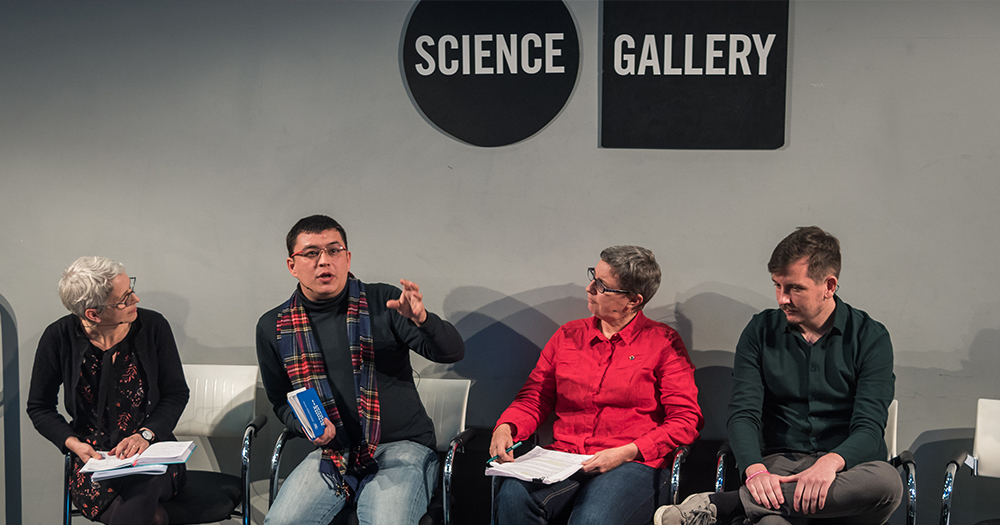Last night at the launch of the NXF’s report, ‘Life As An LGBT Migrant’, a panel discussion was held where much of the talking points centred around the inhumane and cruel conditions faced by asylum seekers living in the Direct Provision system.
https://www.facebook.com/gaycommunitynews/videos/340704449839782/
Evgeny Shtorn is a sociologist who had to suddenly flee his home in Russia’s St. Petersburg and now lives in a Direct Provision centre in Galway.
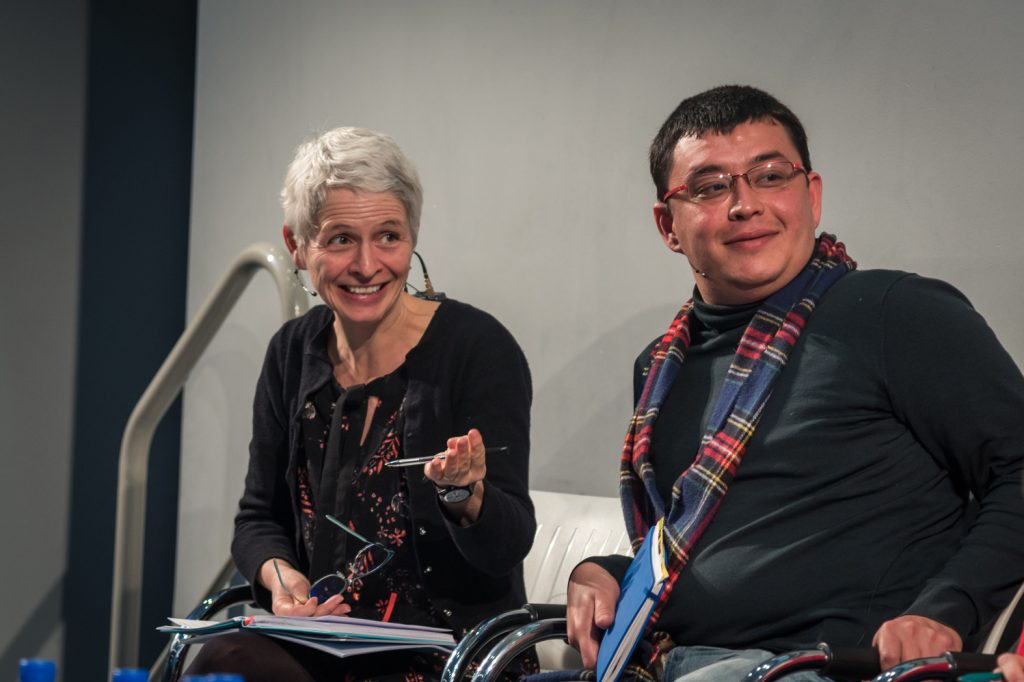
He spoke about life on a stage that is the Direct Provision system.
“Imagine that you are living here all the time, 24/7 in this stage. Observed by a lot of people, some of them don’t like you, some of them are okay with you and some of them are friends with you.
“You have this feeling of a constant panopticon of being constantly observed.”
Although Evgeny initially wanted to see the creation of LGBT+ safe spaces within Direct Provision, living in the system has shown him that this is not the solution.
“It’s not about LGBT, it’s not about us, it’s about the whole society.
“It’s about a very severe, it’s not even hostile, it’s a severe phenomenon of very very vulnerable people who are forced to live in an absolutely inhumane situation.
“I didn’t ask for this, I asked for international protection for my human rights.
“It’s absolutely bad for society because being inside as a social anthropologist I see people who are cultivating frustration which will transform into hate in the future.
“They won’t forgive because I see people who are spending seven years there. Imagine seven years here (on the stage). It’s something that cant be easily forgotten even if you’ve got papers.
“The most difficult thing is this uncertainty that people are living in because there are no criteria for how your case will be developed. There is no clear understanding of what is the stage.”
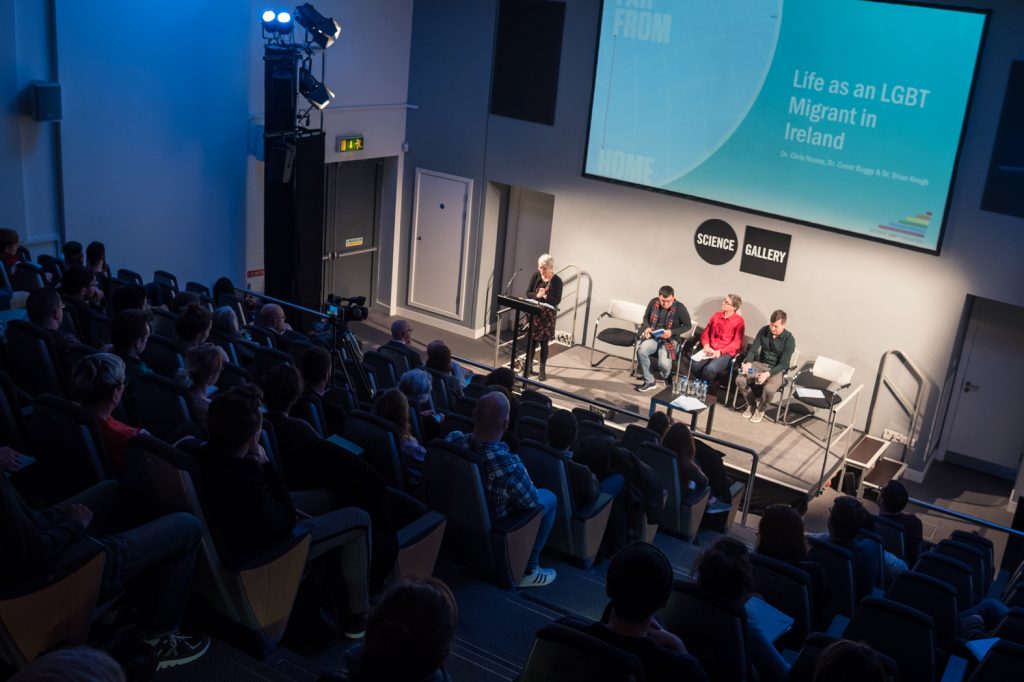
Evgeny said he has found Irish LGBT+ organisations very welcoming and supportive and feels that being LGBT+ brings privilege that gives LGBT+ asylum seekers entry into a community that they might not have access to otherwise.
“I really felt so privileged to be very welcomed by basically all the organisations, LGBT and migrants organisations in Ireland.
“When I think about children in Direct Provision, when I think about people with disabilities in Direct Provision, when I think about victims of domestic violence in Direct Provision I get much more angry because these people, unfortunately, don’t have this community, structures, organisations, who can host you, who can help you.”
Collette O’Regan from LGBT Ireland said that despite many positive things happening in Ireland over the past number of years, not everyone has benefited equally from those changes.
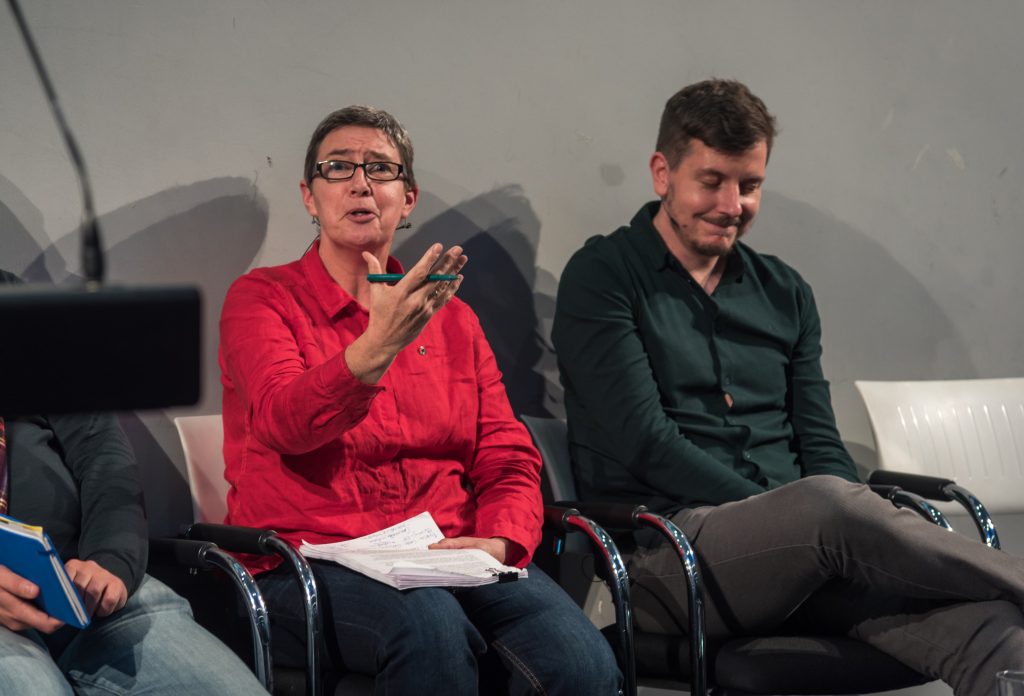
She noted a stark difference between the experience of LGBT+ migrants and LGBT+ asylum seekers.
Through her work in peer support groups with young LGBT+ asylum seekers, she said: “sometimes you feel quite ashamed as an Irish citizen of what’s happening in the name of Ireland.”
“When Ireland became a destination country during the Celtic Tiger, things were different, when people came they could be part of a community. That all changed sometime around 2000 and these centres started in Dublin and increasingly we are seeing them further and further away from large cities so it’s quite isolated.”
Collette detailed that rural isolation is in itself a problem for LGBT+ people living in Ireland and how living in a rural Direct Provision centre as an LGBT+ person only compounds this isolation and absense of community.
“Rural isolation is a huge problem for all LGBT people living in Ireland. There are not enough LGBT+ resource centres.
“We’re still just at the beginning of transforming Ireland, we’re not at the end. A lot of people think ‘oh a lot is achieved now, it’s fine’. No- there is still more work to do.”
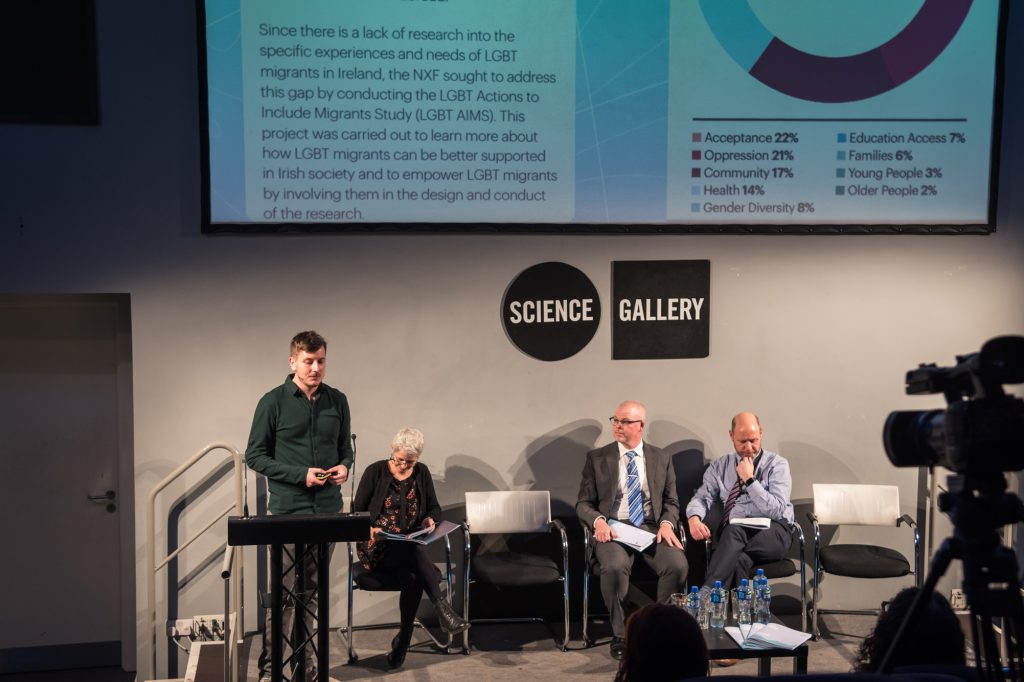
The report has made a number of recommendations to policy makers including a need to facilitate greater access to mental health services for LGBT+ migrants; LGBT+ cultural competency training for all public service employees; an end to the system of Direct Provision and a review of the asylum application process, specifically in the context of how applications relating to sexual orientation and gender are handled. Calls were also made for the introduction of effective hate crime legislation.
Read the full report here.
© 2018 GCN (Gay Community News). All rights reserved.
Support GCN
GCN is a free, vital resource for Ireland’s LGBTQ+ community since 1988.
GCN is a trading name of National LGBT Federation CLG, a registered charity - Charity Number: 20034580.
GCN relies on the generous support of the community and allies to sustain the crucial work that we do. Producing GCN is costly, and, in an industry which has been hugely impacted by rising costs, we need your support to help sustain and grow this vital resource.
Supporting GCN for as little as €1.99 per month will help us continue our work as Ireland’s free, independent LGBTQ+ media.
